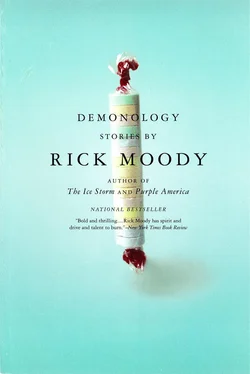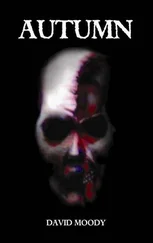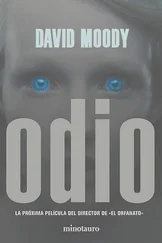The exhibition? The opening?
It took a few moments to sink in. They were huddled in the doorway, in the glare of interior light, her guests. Two or three of them squeezed into the doorway, like Keystone Kops hastening into a comic interior. The paint job was semigloss. The bright illumination of track lighting and the spots that Gerry had erected around the ducts on the ceiling ricocheted from these blank walls. Across the space, into corners, back into the space, the glare of it. Blank walls. Exactly blank. Completely blank. Blank without interruption. As the first two guests lurched into the space, more were just behind, crowding behind them. It wasn’t like every corner had been swept clean. M. J. could see that colony of dust bunnies, making its way, as always, from the heating register under the bay window into the center of the floor. But it was the walls that arrested everyone. Whiteness of the white walls, absolute blankness of the display, absolute poverty of ideas contained in it, M. J. could feel it even where she stood, the moment where each of the guests tried to evaluate whether or not they should consider themselves suckered by the gallery interior. By the implicit privation of the space. There was no exhibition. Or, at least: no art. The art at the Mad Son Electric Gallery was the gallery, was the fact of its presentation, was its concept, was its appearance, was its history, was its ambition. There was a discouraging silence, while each of them made his or her way past each of the dividers that separated the exhibition space, looking, making sure there wasn’t some tiny, postage-stamp-sized statement somewhere that might account for what they were not seeing.
Gideon was the first to get the drift. By exercising the powers vested in him as a doctor of philosophy in mathematics, he found that the piece of art that most fascinated him was the table on which the case of wine sat, still in its box. A pair of sawhorses with a door across the top of them, a sheet thrown over the whole thing, bottled wine on top. Meaning is usage, after all. Right? An interpretation of a gallery, not a gallery itself. You rope it off, but the ropes themselves are the artwork. Something like that. I can get behind it. Let’s drink. A good preliminary theory, anyway, unless it was the people contained in the gallery who were the show, a bunch of youngsters from the Mile Square City of Hoboken, NJ, who had come through intersecting routes, to be here, at this moment of disappointment. M. J. stood at the mirror by the front door, attempted to fix her makeup. There was Gideon and Lori, and the three locals — musicians, one of whom had once played bass for Yo La Tengo. There was her cousin Nicky Jarrett, who never said boo, his girlfriend of the week, called Annabelle. They all made themselves comfortable. The ancient crushed grape flowed from a decanter. Gideon acted as steward for the event, carrying the first and second and third bottles around, pouring out their contents, mopping up the overturned glasses.
Later, with the sprawl of them sitting on the floor laughing, drinking out of plastic cups, she roamed out onto the step. There were two strays now. One of them was Gerry.
two
Late in every possible way. Late to engagements major and minor; late when it was crucial to be on time; late when it made no difference; late when lateness was clearly his fault; late when he was at the mercy of others; late in the mornings (for having slept late); late in the evenings (for having stayed up late); late to the birth of his godchildren; late to the World Series game, that October classic; late to movies, notwithstanding trailers; late to plays; late to job interviews; late to the doctor and dentist; late to dates and romantic escapades; late when remorseful about lateness; late when careless; late when happy, late when sad or impervious to feelings, increasingly late, and it had always been that way. He was always leaving someone, arms folded, irate, in a lobby or on a street corner. He’d even been late to his accident, that frivolity of kids in their twenties. He’d waited until later, a decade later, after giving up on New Jersey, before finding himself on a stretch of interstate between Brattleboro and Northampton, on a rainy autumn afternoon, at dusk. Red been drinking sure. His was a flying car. He swerved onto the shoulder, gravel percussive in his treads, and then the car lifted off, and there was a blissful moment of flight, too brief. The front tires struck earth and his car began to negotiate the fields of New England, rolling lengthways, like a steed getting friendly with the mud, three or four of these gymnastic tumbles. Inside, alone, upside-down, right way around, a game. It didn’t leave him time to think of his death, although death was a possibility. How were the cars behind him accounting for this sequence, in which a rental car plunged off the road into a meadow? What did they think as this rental car rapidly approached a majestic American linden over near some cows; wasn’t it clear that he would frontally strike the American linden, now, scattering the cows, and what did those cars back on the interstate think. There was nothing to do but strike the tree. His aloneness was poignant to him later: if none of the cars on the interstate skidded onto the shoulder, to offer help, well, there would be no one to acknowledge his last end; there was barely time for conjecture as the car was telescoped by the tree, and his arm, his left arm, the arm with which he wrote diary entries and scribbled doodles that a quack therapist had once called evidence of a fine, questing mind, his left arm was pinioned by the engine when the engine came up into the front seat of the rental car, pinioned between steering wheel and engine, when the air bag failed to inflate. He fractured his arm so multiply that even a half-dozen invasions by eager surgeons couldn’t alleviate his suffering. We can give you ninety percent movement, definitely. He had fifty percent movement. And there were pieces of aeronautically perfected metal in there now. He had an elbow made of plastics, a titanium humerus, bone grafts in the radius and the ulna, and pain all day. Pain in the morning, pain in the evening, pain when he slept. He hadn’t known anything about pain until a state policeman with an infernal apparatus pulled him from the wreckage. The arm hung from him sideways as if it were the right arm and he had wrongly assembled himself with right attached to left side. Pain commenced. Medication commenced (Percocet, Percodan, Dilaudid). Now there were two things that were chronic in his life, namely lateness and pain.
It wasn’t a story he told. In fact, the accident enraged him, especially the retelling of it. The necessity of medication enraged him. The lackluster sympathies of acquaintances enraged him, their troubling cases of tennis elbow, their arthriscopic interludes.
On the other hand, there were tales of the past worth remembering. There were consolations in memory. There were narratives of things lost. That party at the Fosters’ house, for example. In Darien. The Fosters’ house? It wasn’t a house. It was a mansion, and the Fosters — though you wouldn’t know it from Nick Foster, whose only distinguishing characteristic was an inclination to set things on fire — went as far back in American history as America went back; there was a Foster who was the law partner of Button Gwinnett or Roger Williams; there was a Foster on the bridge in the battle for Concord and Lexington. And Nick Foster’s grandfather had made a lot of money in millinery, hydro-electrics, espionage, some grand American business. He’d made a lot of money, and they had this mansion, and outbuildings next to it, for the butler, the cook, the maids, the groundskeeper. They had a river that meandered through their yard. Stream was the more appropriate term, maybe even creek. The creek had a waterfall on it. He couldn’t believe it, back when he was a teenager, that anyone had so much money that they were allowed to own a waterfall, and horses, too, and miles of trails. So many miles of trails that there were always kids wandering around there. He had taken Lynn Skeele to the Fosters’ property to woo her, though no wooing was done; instead they exchanged stories of the past, that raw material of all present association, lies about the past, false memories, hyperboles, concentrations of remorse. He miserably frequented trails with Lynn Skeele, boasting that he had shot things with a twenty-two-caliber rile. As if a twenty-two could impress Lynn. On the contrary, Lynn knew what all residents of Gerry’s neighborhood knew: his surname was Abramowitz. In a town full of Burnses, Sutherlands, Talmadges, Griswolds. He was Abramowitz. He was Jewish on his dads side and he didn’t wear a yarmulke, but he sure didn’t wear Lacoste shirts or L. L. Bean either. Lynn Skeele didn’t want to hear about it, the kind of stuff that won you friends in Young Adult novels. He grew up skeptical. His skepticism was a seedling in the old forest behind the Fosters’ mansion, and Lynn Skeele and the others might have wiped out this seedling of skepticism with a little kindness, but instead they fed and watered it. He was Abramowitz.
Читать дальше












